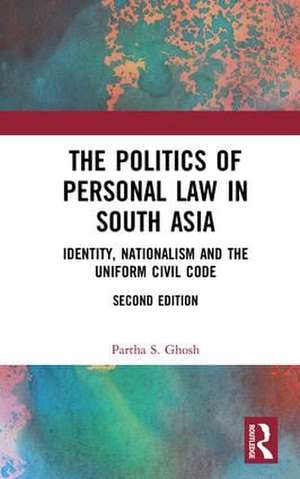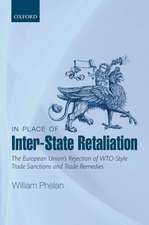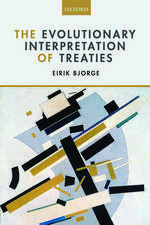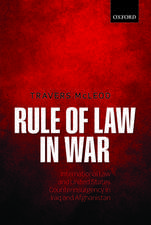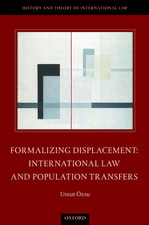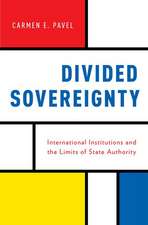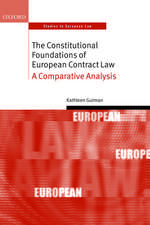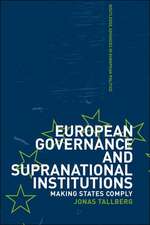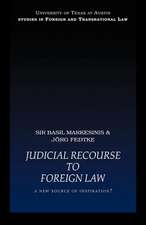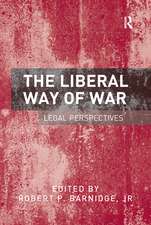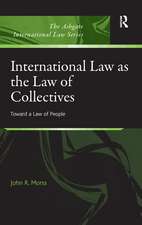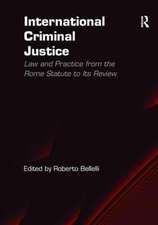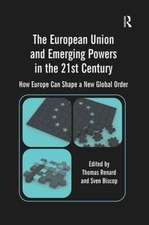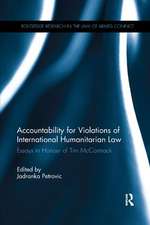The Politics of Personal Law in South Asia: Identity, Nationalism and the Uniform Civil Code
Autor Partha S. Ghoshen Limba Engleză Hardback – 15 mai 2018
As most of the South Asian states today subscribe to a decentralised view and share a common history, this study is an excellent comparative analysis of the applicability of the UCC. In this work, India figures prominently, being the most plural and vibrant democracy, as well as accounting for almost three-fourths of the region’s population. This provides the backdrop for an analysis of the other states in the region.
This second edition will be indispensable for scholars, researchers and students of law, political science and South Asian Studies.
| Toate formatele și edițiile | Preț | Express |
|---|---|---|
| Paperback (2) | 260.07 lei 6-8 săpt. | |
| Taylor & Francis – 18 dec 2020 | 260.07 lei 6-8 săpt. | |
| Taylor & Francis – 31 mar 2021 | 389.38 lei 6-8 săpt. | |
| Hardback (2) | 765.03 lei 6-8 săpt. | |
| Taylor & Francis – 15 mai 2018 | 765.03 lei 6-8 săpt. | |
| Taylor & Francis – mai 2007 | 1005.34 lei 6-8 săpt. |
Preț: 765.03 lei
Preț vechi: 1103.28 lei
-31% Nou
Puncte Express: 1148
Preț estimativ în valută:
146.41€ • 152.29$ • 120.87£
146.41€ • 152.29$ • 120.87£
Carte tipărită la comandă
Livrare economică 14-28 aprilie
Preluare comenzi: 021 569.72.76
Specificații
ISBN-13: 9781138551657
ISBN-10: 1138551651
Pagini: 394
Dimensiuni: 138 x 216 mm
Greutate: 0.5 kg
Ediția:2
Editura: Taylor & Francis
Colecția Routledge India
Locul publicării:Oxford, United Kingdom
ISBN-10: 1138551651
Pagini: 394
Dimensiuni: 138 x 216 mm
Greutate: 0.5 kg
Ediția:2
Editura: Taylor & Francis
Colecția Routledge India
Locul publicării:Oxford, United Kingdom
Public țintă
PostgraduateCuprins
List of Tables. Preface to the Second Edition. Preface to the First Edition. Acknowledgements 1. Introduction: Issues and Concepts 2. The Evolution of the Indian Discourse 3. It is Politics, Stupid! 4. On the Fringe: The Tribal Laws 5. The South Asian Mosaic 6. The Wider Context 7. Conclusion. 8. Old Wine in the Old Bottle. Appendices. Glossary. Bibliography. Index
Notă biografică
Partha S. Ghosh is Senior Fellow at the Institute of Social Sciences, New Delhi, India. Formerly, he was Professor of South Asian Studies at Jawaharlal Nehru University, New Delhi; Senior Fellow at the Nehru Memorial Museum and Library; ICCR Chair Professor at the Victoria University; Visiting Professor/Humboldt Fellow at Heidelberg University; and Ford Scholar at the University of Illinois. He had a long stint as Research Director at the Indian Council of Social Science Research. His most recent books are BJP and the Evolution of Hindu Nationalism: Savarkar to Vajpayee to Modi (2017) and Migrants, Refugees and the Stateless in South Asia (2016). He has contributed chapters to many edited volumes and published extensively in professional journals, magazines and newspapers.
Recenzii
‘This book is important because it helps us understand the complex political choices that might be made in the area of personal law in South Asia.’
Muneer Mustafa, Contemporary South Asia, 18(3), September 2010
Muneer Mustafa, Contemporary South Asia, 18(3), September 2010
Descriere
The viability of the Uniform Civil Code (UCC) has always been a bone of contention in socially and politically plural South Asia. It is entangled within the polemics of identity politics, minority rights, women's rights, national integration, uniform citizenry and, of late, global Islamic politics and universal human rights. While champions of each category view the issue from their own perspectives, making the debate extremely complex, this book takes up the challenge of providing a holistic political analysis. As most of the South Asian states today subscribe to a decentralised view and share a common history, this study is an excellent comparative analysis of the applicability of the UCC.
